Internal coaching at Wipfli helps associates and leaders define goals to help them become their best selves
Every firm wants to bring out the best in its people, but what sets Wipfli apart is the commitment to making it happen.
The firm has long provided associates with access to a wide range of professional development resources and training opportunities. Creating the firm of the future means offering multiple options for skill building, better engagement with clients and colleagues, and helping ensure a strong and diverse pipeline of next-generation leaders.
The newest element of this effort was the launch of Wipfli’s one-on-one coaching program in early 2022 to help high-performing and high-potential associates from across the firm identify and achieve the goals they set for themselves. The program helps reinforce the firm’s culture of investing in its associates and promoting excellence.
These one-hour, biweekly sessions over 12 weeks are a series of conversations with a certified coach that help participants uncover their own solutions to questions and challenges. Its success depends on three guiding principles: confidentiality, vulnerability and unbiased dialogue.
“Coaching is a partnership. We pull people from the whirlwind of their day job and give them the opportunity to get really focused,” said Wipfli’s master coaching specialist Brian Hennessy, one of two certified coaches at the firm. “Our approach is to ask a lot of questions and facilitate clarity in their goals while exploring options for action.”
The topics addressed have been wide-ranging, including prioritizing projects and time management, building confidence, developing a stronger talent pipeline, better leveraging of talent, improving the quality and productivity of meetings and preparing candidacy for partnership.
The program does not replace the responsibilities of the manager/performance coach but rather focuses on a specific area for development in a high-trust environment. In the end, the individual being coached is in charge of the process, getting to choose their area of focus, goals and actions.
“Helping people adopt a more expansive mindset enables them to grow in their career at Wipfli and in life outside of work,” Brian added.
Here’s how several early participants described their coaching experience and its impact on their work and lives:
Cheryl Carr
Senior manager; outsourced CFO, controller and accounting services practice; Chicago
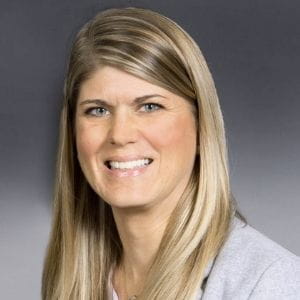
My old firm joined Wipfli in 2019, and it was kind of a whirlwind my first couple of years here. I was zigzagging and meeting new people but really trying to figure out what land I should live in. The truth is I had done that for my whole career.
Through coaching, I gained confidence. Being an effective leader is more of an internal journey than just checking boxes of accomplishments. I’m good at working with people, managing clients and articulating our services. I have an ability to bring people together and move forward with a solution, but for a long time, I didn’t give myself credit for those abilities. Coaching helped me to recognize this.
During the sessions, we talked about getting upward feedback and change management as I am in a fast-moving, growing service line. We worked on how I can get other people to buy into changes and how to work effectively with different personalities. I had to get past my fear of conflict and learn how to state a counterargument effectively to work toward a solution.
Scott Lang, partner, construction, Twin Cities
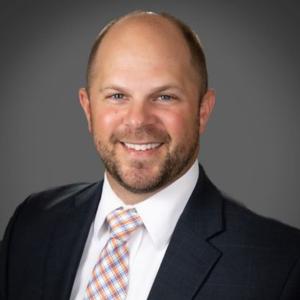
I came to Wipfli over six years ago as a manager to grow our construction practice. We were having success in growing the team and the revenue locally, but when it was suggested that I would have to improve in some areas to become a partner, I began working with Brian for coaching.
We discussed my development opportunities, and he showed me different perspectives on my style and how people experience me. Whether it be with clients or team members, having hard conversations was always a challenge for me. I skirted the hard topics to avoid conflict and uncomfortable conversations.
I tended to come off as abrasive and a gunslinger on topics I was passionate about. He helped me see when it was best for me to sit back and listen, learn from others and gain perspective on the circumstances. He also helped me understand some of my own triggers that surfaced when interacting with others. He helped me see how to navigate around those frustrations to have more constructive conversations and outcomes.
Brian helped me temper my approach. I was surprised about how much clarity he was able to provide. It’s nice to have a resource outside of the individuals we work with to help us all elevate as a team and deliver on our shared goals.
Kathleen DuBois; industry leader; nonprofit, government and education; Washington, D.C.
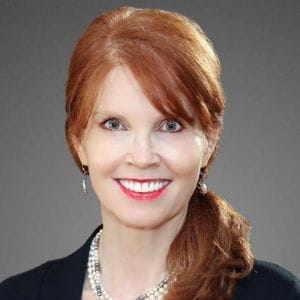
I want to be my best self as a leader so that I can help others be their best selves. To do that, I need to tap into the power of a great coach who can help me.
We all have knowledge gaps and things we could be doing differently to get better results. No star athlete is a star athlete because the coach said just keep doing what you’re doing. I’m working on delegating and networking to bring greater influence beyond my industry for the firm. I’m learning what I can do to help other people grow and I’m definitely seeing progress.
I feel like I need coaching as much now as I did 10 or 20 years ago. We should always be working on ourselves. Our coaching culture is one of the things that differentiates us in the market.
Harrison Hale
Senior auditor; nonprofit, government and education; Chicago
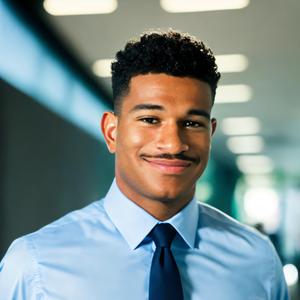
Coaching is helping me both in my profession and in my leadership role as national chair of the business resource group Embrace. We work on developing different flows for time management, project management and public speaking. The lessons apply not just to work but to my personal life, too.
It’s more difficult than I thought it would be. There’s a fair amount of homework, but it’s been good to have someone to talk to who isn’t my supervisor or on my team but has been through similar things. I like being able to bounce ideas off Brian. He recommends actions I can take if I’m not getting results within the BRG. He’s very candid with me.
When there are times in my career where I just get overwhelmed and kind of shut down, he’s made me realize that when you start to feel that stressor, you take a second to step away and figure out how to adjust. He taught me the ABC model: antecedent, which is the catalyst; B, the behavior it triggers; and C, the consequences. I have adopted the mindset of considering the consequences that my actions might bring.
You train yourself to say you want something to happen and then you figure out the steps you need to get there, knowing it’s not going to happen overnight. I’m learning everything I can to set myself up for success. But coaching doesn’t guarantee any outcome, you have to put the work in.
Jamie Hovey, senior manager, tax, Bozeman
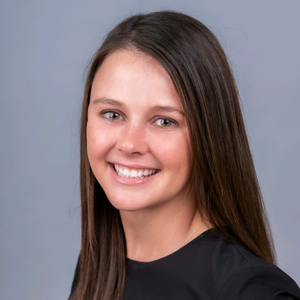
It was important to me to get the oil and gas industries better known at Wipfli. I wanted to figure out how to build a team to expand our presence in this sub-industry. For a long time, it was just me and one other person working on oil and gas as well as other industries.
What I learned in coaching was to not try to take a large chunk of a goal and run with it, but to split it into steps. And for the most part, we’ve implemented those steps. I worked with a lot of people to get oil and gas, which had been a general industry, added to manufacturing, retail and distribution (MRD). This allowed us to get more resources for advertising and staff.
Now we have seven people working on client accounting services (six in India) and five more people doing tax and related consulting work for oil and gas. We’ve more than doubled our number of clients to about 70, but more than doubled the work because we are doing a lot more for them than tax returns.
As an internal coach who’d been with the firm in talent and development for a long time, Brian helped me know who I should talk to outside our region. We built our team from the inside, giving opportunities to interns to learn and grow in this industry and move into other regions. It’s awesome to have all these new people come in and say how much they love this work.
Now I’m able to focus on business development. I still check in with Brian informally now and then. The coaching lasted 12 weeks but the impact is continuing.


